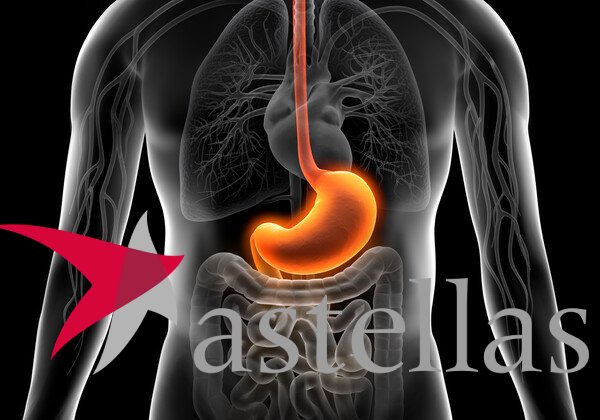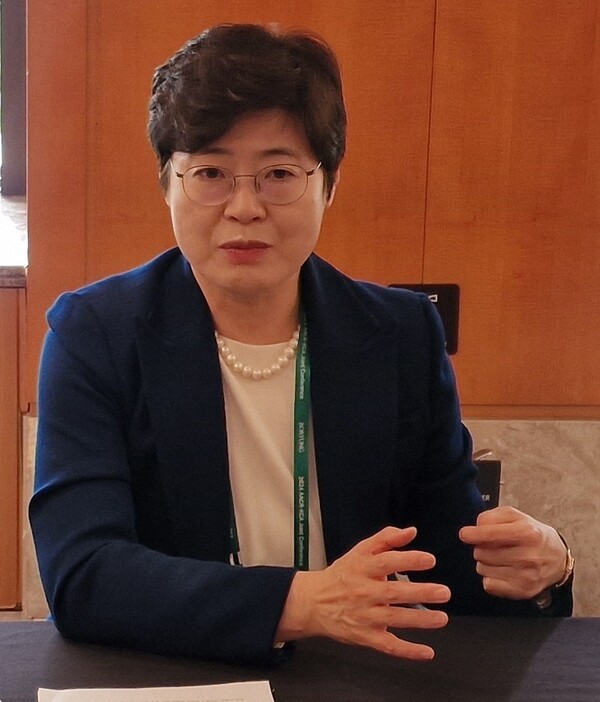The world's first Claudin 18.2-targeted gastric cancer drug, Vyloy (zolbetuximab), recently won approval in Korea, offering new hope for the treatment of stage 4 gastric cancer.
However, experts say the nation’s unduly complicated reimbursement system may prevent Korean patients from using it.

The Korean Cancer Association (KCA) pointed out this problem at a news conference on Thursday for the 2024 AACR (American Association for Cancer Research) -KCA Joint Conference, suggesting that the association will raise policy issues.
Vyloy is the world's first and only Claudin 18.2-targeted therapy. It is an immunoglobulin monoclonal antibody that works by binding to Claudin 18.2, a protein expressed and exposed in the stomach.
In September, the Ministry of Food and Drug Safety (MFDS) approved it in Korea as a combination therapy with fluoropyrimidine-based and platinum-based chemotherapy as first-line treatment for patients with CLDN18.2-positive, HER2-negative, unresectable, locally advanced, or metastatic gastric adenocarcinoma or gastroesophageal junction adenocarcinoma.
A decade after the advent of trastuzumab-based therapies in HER2-positive patients, there is now a new target therapy for treating stage 4 gastric cancer.
“The emergence of Vyloy, which targets Claudin 18.2, a novel gastric cancer biomarker, is expected to be a turning point in the treatment of locally advanced or metastatic gastric cancer in Korea, where treatment options have been limited,” said Professor Lee Keun-wook of the Department of Medical Oncology at Seoul National University Bundang Hospital, presenting the Korean data from the phase 3 trial of Vyloy at the symposium.
Professor Lee continued, “With the median overall survival (mOS) approximately doubling compared to placebo in this Korean subgroup study, we look forward to establishing Vyloy as a treatment that offers hope for patients in Korea, where the current five-year relative survival rate for patients with metastatic gastric cancer is only 6.6 percent.”
Astellas Pharma Korea has also recognized the clinical value of Vyloy, speeding up its introduction in Korea. Korea is the fourth country to introduce Vyloy after Japan, the United Kingdom, and Europe. The company submitted its application for Vyloy to the Health Insurance Review and Assessment Service (HIRA) late last month, and it is planning an unreimbursed launch in January.
However, an unexpected variable appeared recently in the reimbursement of companion diagnostic devices (CDx) used to diagnose Claudine 18.2, raising concerns that the use of Vyloy in clinical practice may be delayed in Korea.
The MFDS approved the CDx—Roche Diagnostics' VENTANA CLDN18(43-14A) RxDx Assay—simultaneously with Vyloy.
Roche Diagnostics immediately applied for Level 2 reimbursement for its companion diagnostic device following the MFDS’ approval. However, HIRA is reviewing whether the CDx is eligible for evaluation for new medical technology.
If it is determined that the Claudine 18.2 CDx is subject to new medical technology evaluation, the subsequent process—review by the National Evidence-based Healthcare Collaborating Agency (NECA) and HIRA—could delay even the unreimbursed launch of Vyloy indefinitely.
Experts in pathology and oncology argue that the Claudin 18.2 CDx should not be subject to evaluation as a new medical technology. The CDx is not a new medical technology because the biomarker (Claudin 18.2) is new. Still, the technology is based on immunohistochemical testing (IHC), a widely established method, they said.

The decision on whether it is subject to new medical technology evaluation will be made at the next meeting of a subcommittee of the Expert Evaluation Committee.
“If the companion diagnostic technology for zolbetuximab is evaluated as a new medical technology, the domestic introduction of the treatment may be delayed up to a year,” said Dr. Rha Sun-young, chairwoman of KCA who is a professor of medical oncology at Severance Hospital.
KCA Chairwoman Ra continued, “Targeted antitumor drugs and companion diagnostics inevitably go hand in hand, but the current system has structural limitations that do not properly support this. Our association plans to actively advocate for policy improvements.”
Related articles
- Are there no solutions for stage 4 gastric cancer patients in insurance’s blind spot?
- Astellas Korea wins approval for Claudin 18.2-targeted gastric cancer therapy
- Will revised gastric cancer clinical guidelines address Vyloy’s diagnostic gap?
- Patient group urges faster access to Vyloy by reforming diagnostic rules

